The Flaws of the U.S. Capitalist System
By Bryan Min
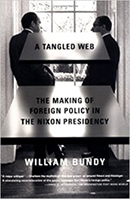
Lydia Sargent
Lydia Sargent was born in January 10th, 1942. She is a writer, author, playwright, and actor, and she is characterized as a radical American feminist. She is a founder of the South End Press Collective and Z Magazine. She wrote “I Read about My Death in Vogue Magazine” and “Playbook” with Maxine Klein and Howard Zinn.


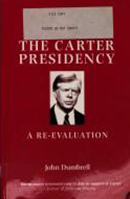
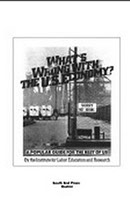
In 1786, Thomas Jefferson once said, “I hold that a little rebellion now and then is a good thing… It is a medicine necessary for the second health of government.”1 Written by Lydia Sargent, the book What’s Wrong with the U.S. Economy? criticizes big businesses and encourages common people, or working men and women, to rebel against them. To do so, it first inspects how the U.S. capitalistic system works and describes inherent flaws, which causes a huge economic gap between the rich and the poor. The work argues that the main reason of this disparity is inequalities and expanding nature of large corporations because of the U.S. capitalistic system. Then, the book, which was written in 1982, describes why the U.S. economy has struggled in the last decade. The work argues that selfish and greedy activities of large corporations, along with the oil crisis and too much money spent on military, mainly caused the U.S. economic hardships in the 1970s. The author finishes the book by explaining her opinion of how the U.S. economy be changed to not repeat another 1970’s.
The author first presents a surprising survey done in 1981: “77% of the U.S. population thinks that the U.S. economy is off the track.”2 Adding on to this survey, the work shows some jaw-dropping facts: prices more than doubled from 1971 to 1981, tax soared by 250%, and interest rates went up significantly. After instilling fear on the audience, the work points out the three principal problems in the U.S. economy that common people suffer: difficulty in making ends meet, deteriorating working conditions, and declining quality of life. Before addressing what should be done to solve these flaws in the economy, the work defines capitalism as a system of exploitation and competitions of power over resources. Also, it suggests that depressions are inevitable under capitalism because of disconnected economic decisions, which cause overproduction and thus inflation. The work blames large corporations for making the U.S. economy a system of suffering for working people because they pursue profits and only profits, working like an emotionless machine that expand to the expense of exploiting working people. The book suggests that working men have a hard time fighting against this abuse of large corporations because labor organizations can be easily weakened by outsourcing and disunity within the union.
The book goes on to explain that large corporations are inevitably increasing in size as long as they are looking for profits because they have to find new supplies and customers. It suggests that the increasing size of the large corporations is not beneficial in any sense because the spreading of capitalism causes global crisis when disconnected economic decisions are made by corporations. In a powerful sentence, the author encourages the working people, “If we sit back and wait for economy to solve our problems, we may die first.”3 To support this somewhat radical statement, the book shows that corporations did not create jobs even during the time of economic growth and concludes that capitalists’ control prevents potential improvement. The work then explores if the government can prevent another economic depression, which is mainly caused by the greediness and selfish nature of corporations. However, the author concludes that government control on corporations cannot work, because corporations have control over their production: corporations fire their employees when their profit making is limited due to government control.
The author further exposes abuses of the big businesses by suggesting that most of the small firms, due to competition, either fail or are swallowed up by large corporations. Thus, the work concludes that under the American enterprise system, it is “impossible to organize a business that competes with and change the practices of the dominant corporations.”4 It proposes that corporations will choose their profits and control over the quality of our lives. The work suggests that workers’ management system of a corporation is a good way to stop the corporations’ selfish nature from afflicting common people, but the book also proposes that it is not enough. The author argues that we should both share and coordinate production decisions. After suggesting that our economic system should incorporate more of socialistic ideals to be improved, the author explains that capitalism is unfriendly to democracy, because corporations only focus on interest in the rights of property over political rights. To support this claim, the book shows that corporation’s boycotts and bank’s refusal to loan serve to maintain their powers.
After discussing about large corporations and capitalism, the book shifts its focus to working people. The book defines working people as ones “working for a living, a boss, together, against the tide (we don’t run the country).”5 The work proposes that the difference among them is rooted in the kinds of jobs they hold, like factory and office jobs, routine jobs and dead-end jobs, and private and public jobs. The book moves onto explain inequalities, which are one of our economic problem, that are prevalent in the U.S. society. The first group is immigrants. The work suggests that immigrants, in response to corporation’s manipulations to increase divisions among working people and newcomers so that they can effectively maintain their powers, developed ethnic self-reliance. The second group is women. Sargent argues that women get less pay than men because employers benefits from downgrading female labor with absurd reasons. The third group is blacks and hispanics. The work shows that blacks and hispanics earn less than white for the same work and tend to fall back even more during period of recession and instability because of discrimination against them in a job market. Sargent then argues that corporation likes divisions among ethnic groups and sexes because they curb the power of labor union, which tends to organize continually and militantly. Sargent moves onto explaining why the U.S. was in depression. Its story goes like this: in the 1950’s and 1960’s, America enjoyed a great prosperity. However, resistance to U.S. power started to grow due to competition from Europe and Japan and growing worker resistance. Adding onto this, expensive defense expenditures mainly for the Vietnam War and the OPEC oil embargo caused inflation along with higher interest and unemployment rates. The book ends by suggesting that our economic system should be turned into popular economy, where there is community enterprise, democratic planning, and democratic capital control. To achieve this, the book advocates unified efforts among all workers to let the wealthy make sacrifice for the majority.
The book thoroughly explains how big businesses exploit common people. It blames inflation on bureaucratization of big corporations by stating this surprising fact: “we not spend 20 cents of each dollar of consumption on the salaries of managers and supervisors.”6 The author continues to reveal the data of wrongdoings that corporations had been done to economy while pursuing blindly for profit and instigates the readers by transforming the statistics so that the audience can relate their current problems with the businesses’ malpractices. In doing so, Sargent presents the thesis: working people should unify to defy and reform the U.S. capitalistic system, in which large corporations suppress the less powerful organizations and people to maintain their powers. To support the statement above, the author further argues that divisions among working class only promote the interests of large corporations. Sargent then carefully considers how corporations manipulatively encourage inequalities of different working class groups like immigrants, women, blacks, and latinos. She suggests that unification among all working people are the only way to change the economic system which systematically only benefits the rich.
The book is written by the Institute for Labor Education and Research, but the main director is Lydia Sargent. She is often characterized as a radical American feminist. Thus, even though this book’s main purpose is to encourage working people to defy orders of the rich, this book also devotes many of its chapters to describe inequalities that exist in various parts of the society including relationships between working class and managers, majority and minorities, and men and women. Also, throughout this book, Sargent laments women’s inequalities by characterizing housewives as a holding dead-end job because they do not get any pay and work endlessly like how one pamphlet from 1908 describes: “the housewife’s work is never done.”7 As a founder of South end Press, which is a non-profit book publisher that advocates participatory economics, and a radical feminist, Sargent constantly shows her biased view against the rich class, characterizing every one of its actions as greedy and selfish. She believes that any actions taken by working people would induce better results, mostly out of her ardent hatred toward the rich and her left political view. The author wrote this book in 1982, when the public’s skeptical view on American capitalism was high because of severe depression in the last decade. This economic hardship incorporated stagflations and inflations, which greatly decreased the general American population’s ability to consume. Thus, Americans, because most of them could directly feel the pain of high prices and interest rates, characterized this decade as the worst economic crisis only after the Great Depression. In 1982, America was somewhat improved from the economic hardship but not completely, especially for the working class. Therefore, the book tries to persuade the general population of American that corporations, not other groups that differ in ethnicity and gender, are the real groups to blame for economic troubles and should be reformed. Sargent’s historiography can be categorized as a new historian, because she focuses on the experiences of ordinary people, like housewives and workers.
J. Holton Wilson, a professor of Business at University of Montana, drafted the critical and sharp book review. He defines the book by stating that “there is no pretense of a balanced treatment of the issues involved.”8 In other words, Wilson describes the book as radical and one-sided because the author characterizes corporations, business managers, and economists as enemies of the majority of the American people without discussing their positive impacts on economy. Because the U.S. was still in the midst of the Cold War, the reviewer might have been more critical than necessary; the book contains socialist aspects such as labor force coordinating the work effort without management and characterizes capitalism as a system that causes constant troubles and desperately needs reform. Wilson ends his review by this casual yet satirical statement: “much of the economic analysis the authors offer is unrealistic. Nevertheless larger libraries should acquire this volume for its alternative viewpoint.”9 A newspaper called The Nation composed the second review in the less biased viewpoint. The editor describes the book’s purpose: “intended to be an organizing tool to help create a popular response of Reaganomic.”10 In other words, the book review depicts the work as an instigator for common people to defy or at least have doubts on Reaganomics, which favor widespread tax cuts and the deregulation of domestic markets. Then, after the book review, the newspaper presents a long excerpt from the book that discusses four ways to change the corporations. This excerpt is to introduce the whole theme of the newspaper’s topic for the day, explaining to people how to deal with corporations taking their money.
Sargent overall took a too radical stance on her skepticism with large corporations. She refuses to acknowledge any benefits that big businesses contribute to society like creating jobs and raising revenues for government by paying high amount of taxes and tariff. Sargent firmly believes that popular economy, in which the working class participates in decision makings of corporations, would prevent another severe depression like the one in the 1970’s, because it would inhibit another economic conflict that arises inevitably from disconnected decisions. However, there is no guarantee that decisions made by the majority would produce better results. Sargent states that “inequalities have deep roots,” but then she reverses her statement by unfairly blaming corporations for manipulating inequalities among common people.11 Sargent’s argument that the working class suffers harshly from practices of big corporations is supported without any acknowledgement that her opposition’s argument is also somewhat correct. Because history is to be evaluated and contains not one specific answer, the author’s radical stance fails to make this book persuasive. Thus, this book’s primary purpose seems to be advocating socialism and instigating the working class to cause disturbance and unrest in society.
The author suggests that the 70s is a time of severe crisis in the United States because of economic troubles caused by large corporations, which harshly afflicted working people. The author supports her argument by stating that depression in the 70s, which brought inflations, stagflations, higher unemployment rates, and higher interest rates, were combined to torment the working class. Because the book firmly believes that disconnected productions by large corporations are the main reasons, beside excessive defense expenditures and oil crisis, behind the economic hardship, Sargent advocates working people to unite and reform the U.S. capitalistic system, which was formed to serve the interests of wealthy class and big businesses only. Sargent does not mention much about the 60s, but it can be inferred from the book that she believes the 60s, in terms of its economic system, is a continuation of the 70s. Her belief that large corporations have continued on exploiting and manipulating the working class is clearly shown when she says, “inequality in unemployment more than doubled during the 1950s and 1960s.”12 She then goes on to explain inequalities that have existed in the 1970s and still continues to trouble many Americans in 1982. Sargent’s argument inequalities are mainly caused by big businesses serves to represent her belief that large corporation did not change its manipulative and selfish characteristics through the 60s and the 70s and thus made the U.S. society be prejudiced and disunited.
At the beginning of this book, beside Jefferson’s quote, the work presents a quote from Business Week magazine: “some people will obviously have to do with less… Yet it will be a hard pill for many Americans to swallow- the idea of doing with less so that big business can have more.” 13 This statement sums up this book’s whole idea: the working class should not suffer any more from abuses of corporations and should conduct a little rebellion, like how Jefferson advocated 200 years from the 1970s. However, the book overall does not convincingly convey this idea because of its radically biased view on corporations or even capitalism itself.
Footnotes:
- Sargent, Lydia. What’s wrong with the U.S. economy?. New York: South End Press, 1982. 1.
- Sargent, Lydia. 12.
- Sargent, Lydia. 56.
- Sargent, Lydia. 102.
- Sargent, Lydia. 256.
- Sargent, Lydia. 153.
- Sargent, Lydia. 76.
- Wilson, Holton. “Book Review: What’s Wrong with the U.S. Economy: A Popular Guide for the Rest of Us.” Literary Journal 1 Nov. 1982: 2093. Print.
- Wilson, Holton. 2093.
- “Economy Got You Down?” The Nation 15 May 1982, sec. 1: 1. Print.
- Sargent, Lydia. 321.
- Sargent, Lydia. 301.
- Sargent, Lydia. 1.
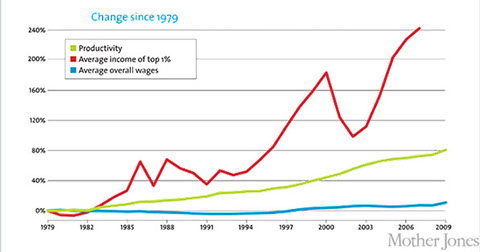
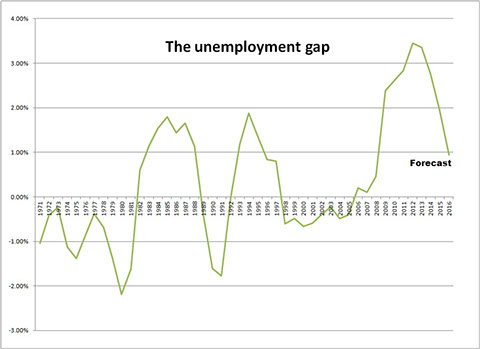
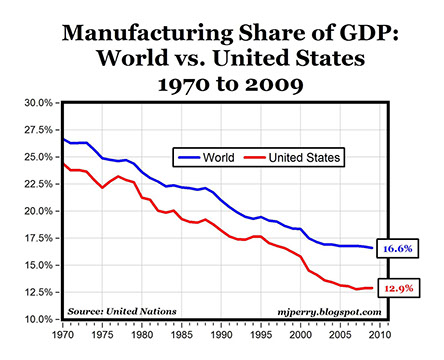
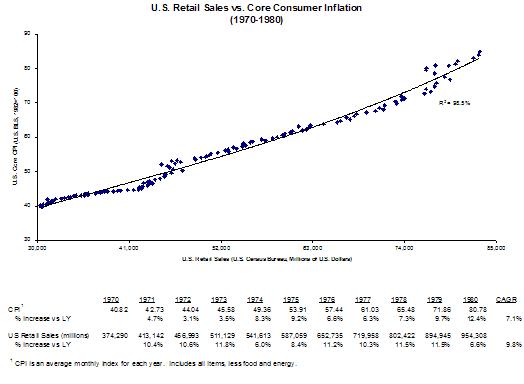
1 - 4
<
>